Recalling the first parent-teacher meeting of the school year for her first grade son in early September, Ms. Diem Thuy (31 years old, Thanh Tri, Hanoi ) still sighs.
During that meeting, the homeroom teacher asked parents to sign a voluntary application for their children to take additional affiliated subjects at the school. The school will partner with an outside unit to teach the iSMART program (learning English through Math and Science ). At this time, parents have not yet received a specific schedule.
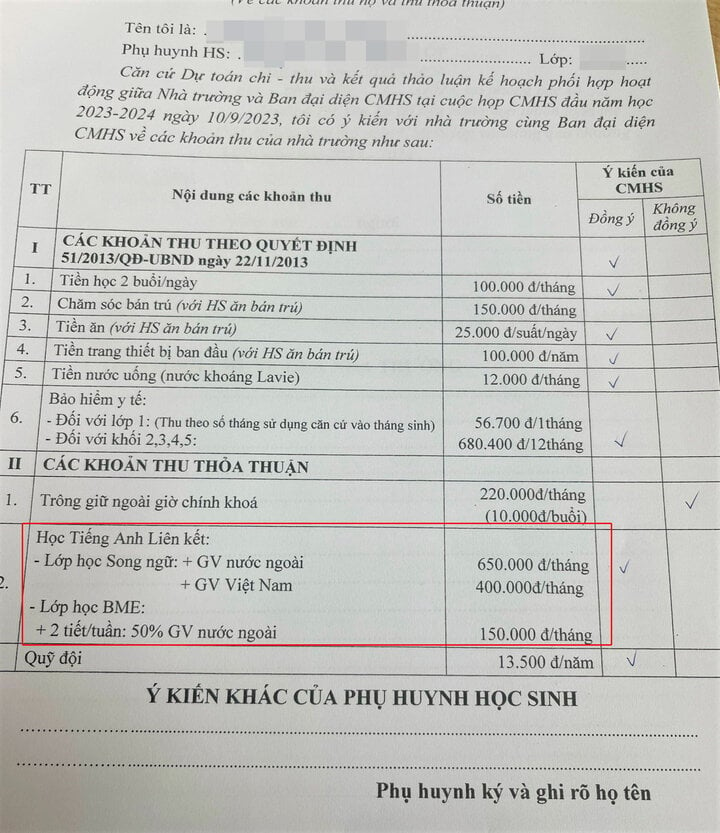
The English tuition fee is included in the agreed fees. (Photo: PHCC)
According to the registration form printed by the school, the bilingual English program taught by foreign teachers costs 650,000 VND/month, and 400,000 VND/month if taught by Vietnamese teachers. The BME-KIDs class, which has 2 lessons/week, costs 150,000 VND/month.
After considering, Ms. Thuy decided to check the box to register for a bilingual class with a foreign teacher. "Every month, I have to spend an additional 650,000 VND for my child to study a combined subject at school. If I don't register, I'm afraid my child will be different and disadvantaged," she said.
When the teacher sent the timetable, she was surprised because despite the name of the school being voluntary, the school calmly inserted the joint and enhanced programs into the regular curriculum. The timetable was pre-arranged, interwoven with elective and regular courses, putting parents in a difficult position - they couldn't refuse even if they wanted to.
Ms. Le Huyen Trang (43 years old) has two children in grades 2 and 4 at an elementary school in Thanh Xuan district, Hanoi, and is in a similar situation. Initially, she and some parents in the class decided not to participate because they thought the joint subject was not important.
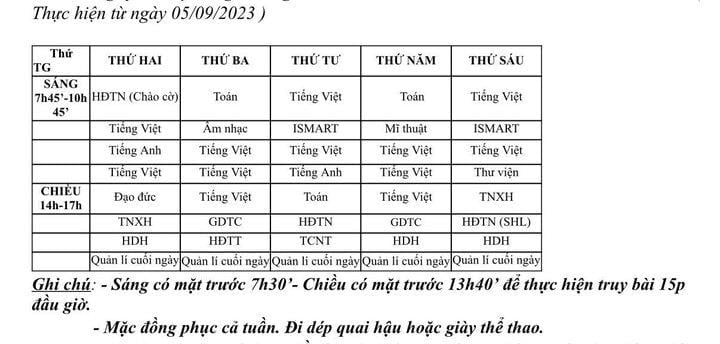
Timetable inserts inter-subjects into the main curriculum of primary school students. (Photo: PHCC)
However, the teacher informed that if the parents did not register for the subjects during regular school hours, the whole class would have to go outside or wait in the teacher's office. In the end, the parents had to sign the voluntary paper, although they were still hesitant.
According to Ms. Trang, the combined subjects are not tested, evaluated, or recorded in the transcript, so parents do not expect their children to acquire much knowledge.
If the school separates the joint subjects from the regular school hours, then only those who need them can register, and students who do not participate can leave school early, which would be more reasonable. For Ms. Trang, forcing children out of class, leaving them alone in the hallway watching their classmates is a psychological blow, and parents who love their children have to pay for the joint study.
Ms. Le Thu Ha (27 years old), a primary school teacher in Hanoi, explained that the school and the subject group arrange the class schedule to suit the human resources and time of the training partner. Therefore, even if the teacher wants a separate class schedule, it is not possible.
"Previously, the school also asked for parents' opinions on organizing joint subjects. Most parents agreed to let their children participate," said Ms. Ha.
Regarding the issue of joint teaching, Mr. Dao Tan Ly - Head of PrimaryEducation Department, Hanoi Department of Education and Training requested that educational institutions organizing extracurricular educational activities must fully implement compulsory lessons, without cutting or reducing the program.
The school principal is responsible for surveying and synthesizing the need to participate in extracurricular activities and developing a plan to implement extracurricular educational activities.
The Department requires schools not to schedule extracurricular activities during regular school hours if the class does not have 100% attendance. The arrangement of the timetable also needs to be scientific and not overload the students.
The leaders of the Ministry of Education and Training signed an official dispatch requesting the Departments of Education and Training to review and report on the situation of extracurricular activities at schools, from preschool to general education, and continuing education. In addition, the departments are required to evaluate the advantages and disadvantages and make recommendations, and send them to the Ministry before October 15.
According to the Ministry, life skills education activities, foreign language teaching, enhanced information technology... according to learners' needs have contributed to consolidating and improving knowledge, skills and comprehensive personality education for learners. However, the management of extracurricular education is still limited, leading to concerns, worries and creating negative public opinion about this type.
EXAM EXAM
Source


![[Photo] General Secretary To Lam visits exhibition of achievements in private economic development](https://vphoto.vietnam.vn/thumb/1200x675/vietnam/resource/IMAGE/2025/5/18/1809dc545f214a86911fe2d2d0fde2e8)


![[Photo] National conference to disseminate and implement Resolution No. 66-NQ/TW and Resolution No. 68-NQ/TW of the Politburo](https://vphoto.vietnam.vn/thumb/1200x675/vietnam/resource/IMAGE/2025/5/18/adf666b9303a4213998b395b05234b6a)


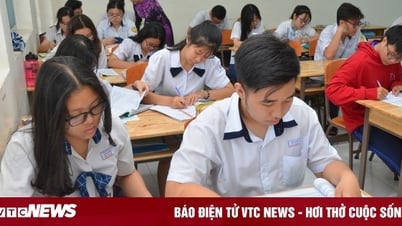
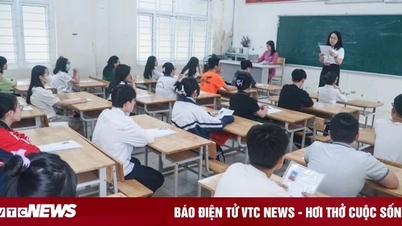


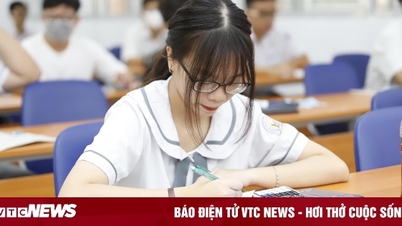

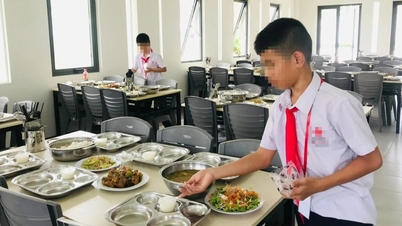

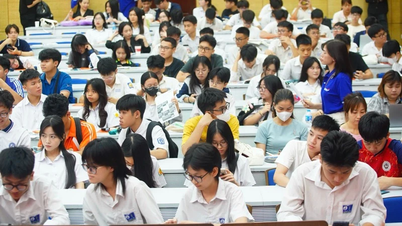

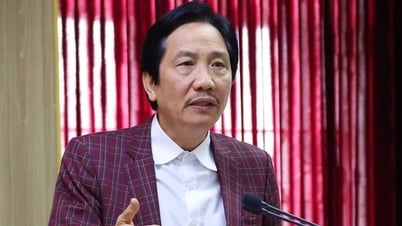












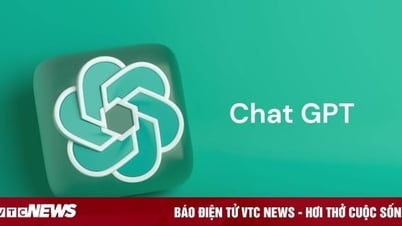
































































Comment (0)